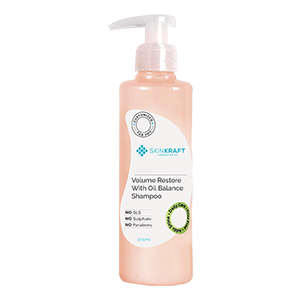You must have come across tons of beauty products that are labeled ‘paraben-free’. Have you ever wondered what exactly they are and why they are harmful?
We are here to tell you why the beauty industry is trying to avoid using this substance. Keep reading to find out.
Highlights:
1. What Are Parabens?
Parabens are synthetic chemicals (preservatives) used in beauty products for giving them a longer shelf life. They prevent the growth of fungi and other microorganisms in beauty, food and hygiene products.
They are derived from para-hydroxybenzoic acid (PHBA), which is naturally found in various fruits and vegetables. The parabens that are most commonly used in beauty products are Methylparaben, Butylparaben, Isobutylparaben, Isopropylparaben and Ethylparaben.
2. Are Parabens Harmful To The Human Body?
Some scientific studies in the recent past have shown that parabens may be harmful to the human body if used in large amounts. These concerns include breast cancer and a decrease in reproductive hormones in men.
Some research also suggests that parabens may cause complications in pregnancy and birth.
A. Parabens And Breast Cancer
A 2004 study found parabens in tumors of breast cancer patients (1) (2). This raised public concerns and a debate over their safety. However, there is not enough evidence to prove that parabens cause breast cancer.
Parabens are said to disrupt normal hormone functions. This is because they can weakly mimic the chemical structure of a natural female reproductive hormone called ‘estrogen’. Increased estrogenic activity is linked to breast cancer. These superficial or external estrogens are said to possibly increase the risk of breast cancer.
B. Parabens And Allergic Reactions
Research suggests that parabens are non-irritating. Only 3% of patients with contact dermatitis or eczema have reported to be sensitive to parabens (3). If you have extremely sensitive skin, conduct a patch test before applying products with parabens in them.
C. Parabens And Your Reproductive Health
Parabens are associated with weakening reproductive systems in both males and females. They may weakly mimic estrogens in the body. This estrogenic activity can disrupt normal hormone functions and interfere with the reproductive system.
A study on male rats suggested that butylparaben decreased testosterone levels (4).
Some studies found increased levels of butylparaben in the cord blood and urine of pregnant women. This was associated with decreased birth weight.
3. Effects On The Environment
Parabens are also known to cause ecological harm. When we wash off our cosmetics and beauty products containing parabens, they are transported through the drainage system into the community wastewater. These synthetic preservatives then accumulate within other substances in the environment.
When parabens are washed off by chlorinated tap water, a lot of by-products may also form. This can cause harm to animals who are exposed to them.
Humans Aren’t The Only Ones Exposed
Although we are directly exposed to parabens, research suggests that these chemical preservatives have also been found in the tissues of various marine animals. These include dolphins, fish and polar bears (5).
Due to their estrogenic activity, parabens can cause serious harm to animals exposed to them as well. High levels of parabens have been found in liquid and solid substances in the environment (6).
4. How Can You Find Paraben-Free Cosmetics?
When you scan through the ingredients list of a product, look for commonly used parabens.
These include:
- Methylparaben
- Ethylparaben
- Propylparaben
- Butylparaben
- Isopropylparaben
- Isobutylparaben
- Benzylparaben
Brands may use these in combinations to keep various microorganisms away.
Look For These Natural Preservatives In Your Products:
A. Oils, Vitamins, Herbs
They are not as effective as parabens. However, they are considered to be safer than synthetic preservatives. Essential oils can be used in place of chemical preservatives. This will ward off bacteria and other microorganisms. However, the shelf life of products with natural preservatives is not as long as the ones with parabens in them.
B. Sodium Benzoate
Sodium Benzoate is used in jams, salad dressings and other eatables. It is 100 percent natural and is considered to be an extremely safe preservative.
C. Phenoxyethanol
This is a synthetic preservative that is derived from ethyl alcohol. The US Food and Drug Administration has approved it as a food additive. It can also be used for cosmetic applications.
Many new alternatives to parabens are being introduced in the cosmetic and food industries. A lot of people are choosing to go ‘paraben-free’. Most researchers claim that the effects of using parabens are usually not too serious. However, with growing public concern, a concerted effort is being made by the beauty industry to avoid using parabens in their products.
Recommended Products
Was this Article helpful?
- Least helpful
- Most helpful





